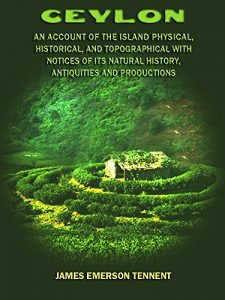There is no island in the world, Great Britain itself not excepted, that has attracted the attention of authors in so many distant ages and so many different countries as Ceylon. There is no nation in ancient or modern times possessed of a language and a literature, the writers of which have not at some time made it their theme. Its aspect, its religion, its antiquities, and productions, have been described as well by the classic Greeks, as by those of the Lower Empire; by the Romans; by the writers of China, Burmah, India, and Kashmir; by the geographers of Arabia and Persia; by the mediæval voyagers of Italy and France; by the annalists of Portugal and Spain; by the merchant adventurers of Holland, and by the travellers and topographers of Great Britain.
But amidst this wealth of materials as to the island, and its vicissitudes in early times, there is an absolute dearth of information regarding its state and progress during more recent periods, and its actual condition at the present day.
But amidst this wealth of materials as to the island, and its vicissitudes in early times, there is an absolute dearth of information regarding its state and progress during more recent periods, and its actual condition at the present day.






